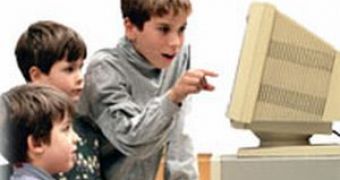Our life is completely changed by the huge amount of easy accessible information provided by the internet.
Things that once necessitated months of documentation and buying many books and magazines are now available with just one click.
But internet can be tricky; it can come with various unwanted information.
A recent study made at University of New Hampshire in Durham revealed that about four in every 10 US youngsters aged 10 to 17 have seen pornography while on the internet, and more worrying is the fact that two-thirds were unwittingly exposed to it.
Many of the exposures to online pornography, wittingly or accidental, were made through the use of file-sharing programs to download images and movies.
"Although there is evidence that most youth are not particularly upset when they encounter unwanted pornography on the internet (it) could have a greater impact on some youth than voluntary encounters with pornography," stated the researchers.
"Some youth may be psychologically and developmentally unprepared for unwanted exposure, and online images may be more graphic and extreme than pornography available from other sources".
The research team made a telephone survey on a representative statistic sample of 1,500 US youngsters from March to June, 2005.
42 % of the subjects said they have received online pornography in the 12 months before the beginning of the study.
On the other hand, 66 % of the subjects related they were not actively searching for the material when they found it, which came across accidentally due to misspelled Web addresses, pop-up advertisements or spam emails.
The percentage of subjects actively searching for pornography were more likely to be teenage boys who also employed the file-sharing, talked online on chat sites about sex with unknown persons, navigated the internet at friends' homes, or were experiencing a depression.
Psychologists say sexual curiosity is not abnormal during adolescence "and many might say that visiting X-rated websites is developmentally appropriate behavior."
But some researchers warn that this could undermine social values or attitudes about sexual behavior, triggering or enhancing promiscuity or compulsive and deviant behavior, as sex is seen as something easy accessible, disconnected to feelings.
All educational factors (like doctors, teachers, parents and others) "should assume that most boys of high school age who use the internet have some degree of exposure to online pornography as do many girls."

 14 DAY TRIAL //
14 DAY TRIAL //